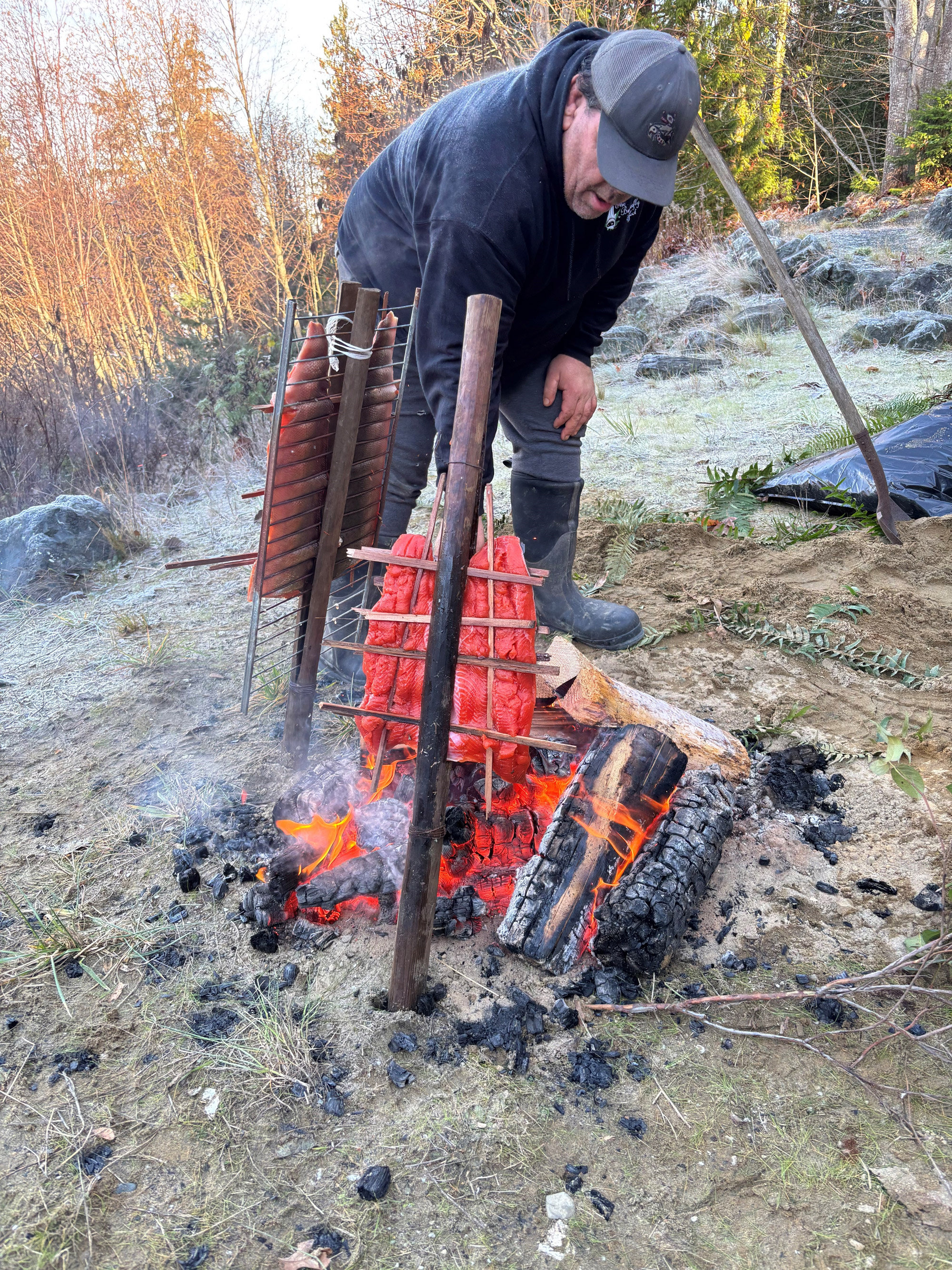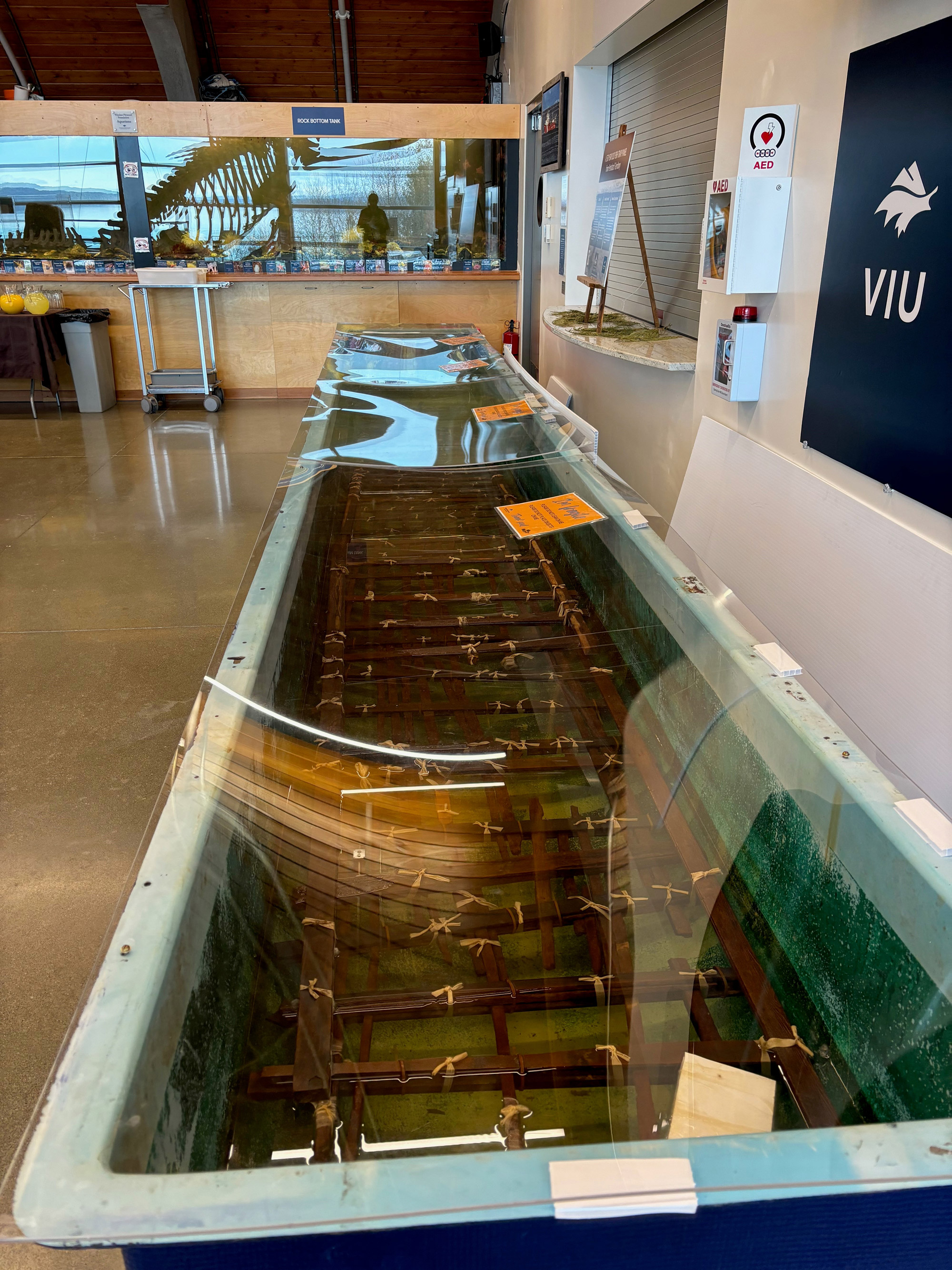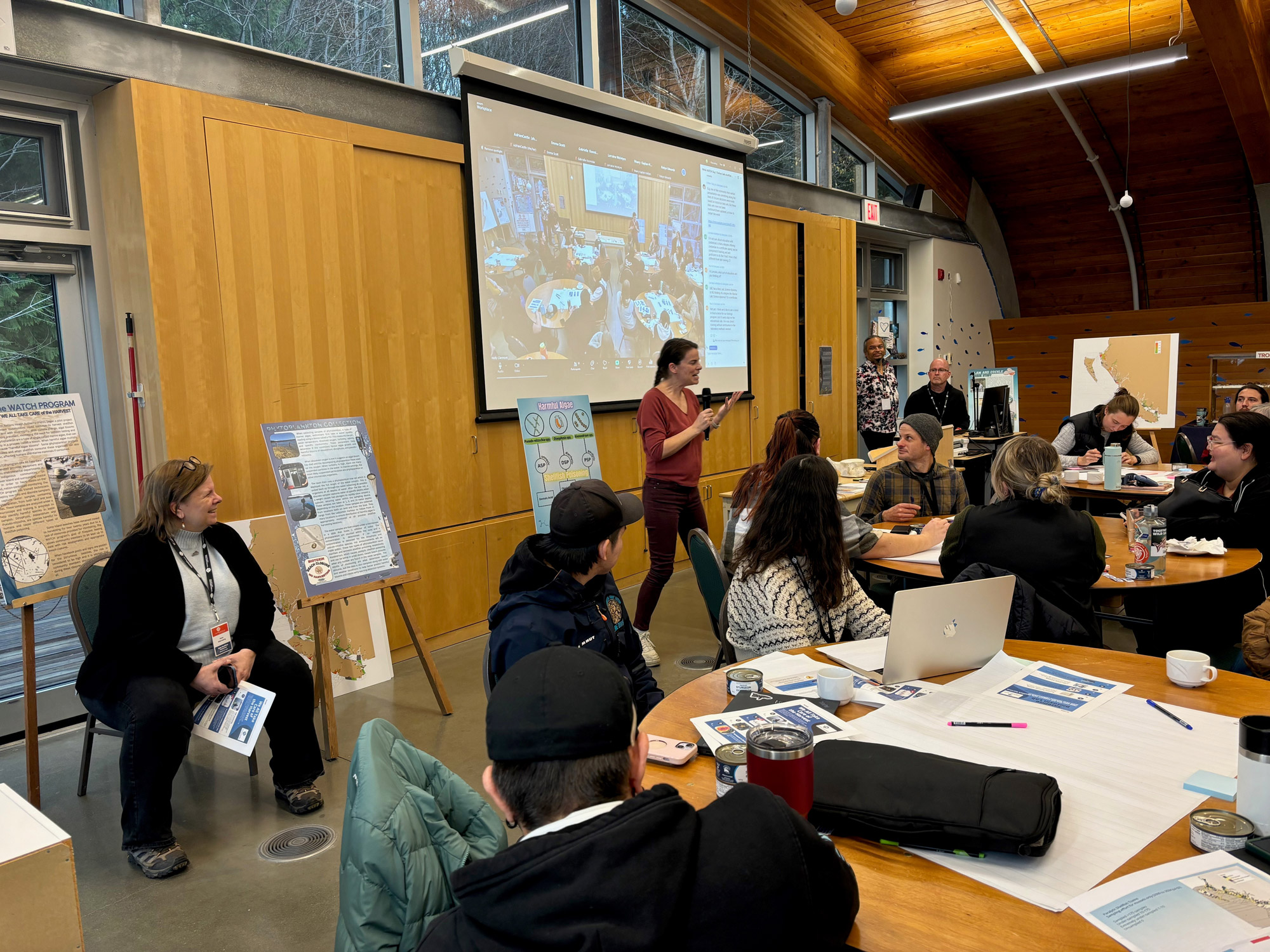
Participants at Deep Bay were treated to a pit cook and a wealth of traditional foods.
Over 100 people gathered at Vancouver Island University's Deep Bay Marine Field Station in late November 2024 to celebrate the conclusion of the We All Take Care of the Harvest (WATCH) pilot project and consider next steps.
The WATCH project began in early 2021 when four First Nations communities, in collaboration with the FNHA, began designing the seafood and climate change pilot project.
WATCH focused on two areas:
- creation of monitoring programs to protect communities from toxins in shellfish from harmful algae/phytoplankton; and,
- learn about climate-related risks to marine foods and the coastal communities that harvest them.
By Spring 2023, a second cohort of communities had joined the project, and the WATCH network grew to more than 100 people representing at least 75 First Nations, federal, provincial, local government, academic, non-profit, international, and partnership groups.
With the WATCH project wrapping up, November's Celebration event included guest speakers, storytelling, and knowledge sharing to carry learnings forward into the journey ahead.
“Feeding our brothers and sisters with these traditional foods is good for our minds bodies and souls as we push forward into this ever-changing world" - Cory Frank, traditional and domestic foods catering, K'omoks First Nation
Speakers and presentations
Anthony Odell from the Olympic Region Harmful Algal Bloom (ORHAB) partnership shared how Washington State Tribes work closely with the state's biotoxin program and have their own Harmful Algal Bloom (HAB) and biotoxin testing labs. Tribes also have jurisdiction over their own harvest. Odell provided critical information regarding harmful phytoplankton that are showing up in Washington waters.
Staff with the Canadian Shellfish Sanitation Program (CSSP) provided an update on CSSP modernization and the two-year-long, $25.1 million commitment made in the 2024-25 budget to assist First Nation communities to safely access harvest for food, social and ceremonial purposes.
Participants also learned about different ways of testing shellfish and other marine foods for dangerous biotoxins, some in development and some available right now. The Canadian Food Inspection Agency (CFIA) shared information on the development of new rapid tests to measure paralytic shellfish toxins in shellfish. Scientists at Vancouver Island University have created a special lab to test shellfish for dangerous toxins. This lab can check for poisons that can cause memory loss or paralysis in people who eat contaminated shellfish. The lab also helps train people from local communities to do testing on their own. This testing remains critical to keep seafood safe to eat, especially for coastal communities that rely on shellfish as a big part of their diet.
Together, participants reviewed maps of poisonous shellfish hotspots, ranked WATCH objectives, and set priorities for the new Vancouver Island University biotoxin lab. Priorities include routine and in-demand biotoxin testing, training, research, and other supports for First Nations community biotoxin labs. With a series of scenario exercises, participants identified opportunities and worked through challenges that might be encountered with new community biotoxin labs and multiple options for testing. In the afternoon, participants from First Nations cohorts gathered to identify priorities for the future of WATCH programming.

In-person attendees experienced the enduring ingenuity of the Ancestors of K'ómoks First Nation. VIU's Deep Bay Marine Field Station was host to a 550-year-old Pentlatch fish trap panel!
Community feedback
First Nations communities consider WATCH as an essential service for safe harvesting, cultural practices, and climate adaptation. They also expressed appreciation for the adaptability of WATCH to community needs and capacities, and its role in fostering continuous learning and collaboration.
There was strong agreement (over 87%) with the objectives of WATCH, which include:
- Supporting community-based phytoplankton and biotoxin labs;
- Completing a marine foods-focused climate and health risk assessment;
- Shared 'seafood and climate' learning events with the WATCH network (and the international community through Ocean Decade until 2030); and
- Additional learning about sanitary and chemical contaminants in marine foods.
There was overall support for WATCH functioning as a central hub for monitoring programs and labs, as well as expanding the program to include additional communities to better address imminent and emerging climate hazards and threats from contaminants.
To learn more about the WATCH pilot project, visit the FNHA's webpage here.

Dr. Shannon Waters (Deputy Provincial Health Officer, Planetary and Water Health) shared reflections to close our first day. “I really care about this work, I think it's really, really important…. I go to a lot of meetings where people are talking about Planetary Health, One Health - we want to incorporate traditional and Indigenous perspectives and we need to support food sovereignty and security. And it's like words on a page. This is like how we actually do it."

